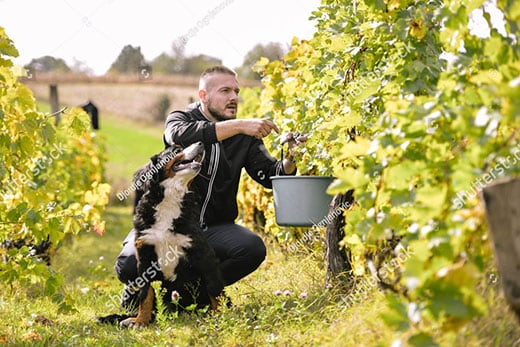
-
Find the right food for your pet
Take this quiz to see which food may be the best for your furry friend.
Find the right food for your pet
Take this quiz to see which food may be the best for your furry friend.
Featured products
 Adult 7+ Perfect Digestion Chicken, Whole Oats & Brown Rice Recipe Dog Food
Adult 7+ Perfect Digestion Chicken, Whole Oats & Brown Rice Recipe Dog FoodScience Diet's breakthrough nutrition supports ultimate digestive well-being & healthy microbiome for dogs age 7+
Shop Now Small & Mini Savory Stew with Chicken & Vegetables Dog Food
Small & Mini Savory Stew with Chicken & Vegetables Dog FoodA delicious complement to the nutrition of Science Diet Small & Mini 7+ dog food
Shop Now Adult Healthy Cuisine Roasted Chicken, Carrots & Spinach Stew Dog Food
Adult Healthy Cuisine Roasted Chicken, Carrots & Spinach Stew Dog FoodDelicious roasted chicken paired with tender vegetables in a succulent stew
Shop NowFeatured products
 Adult 7+ Senior Vitality Chicken & Vegetable Stew Cat Food
Adult 7+ Senior Vitality Chicken & Vegetable Stew Cat FoodImproves Everyday Ability to Get Up & Go
Shop Now Adult Savory Entrée Can Variety Pack Cat Food
Adult Savory Entrée Can Variety Pack Cat FoodPrecisely balanced nutrition with the delicious taste of savory minced chicken to help fuel the energy needs of cats during the prime of their life
Shop Now Adult 7+ Tender Tuna Dinner Cat Food
Adult 7+ Tender Tuna Dinner Cat FoodWith delicious chunks in a decadent gravy
Shop Now -
Dog
- Dog Tips & Articles
-
Health Category
- Weight
- Food & Environmental Sensitivities
- Urinary
- Digestive
- Joint
- Kidney
-
Life Stage
- Puppy Nutrition
- Adult Nutrition
- Senior Nutrition
Cat
- Cat Tips & Articles
-
Health Category
- Weight
- Skin & Food Sensitivities
- Urinary
- Digestive
- Kidney
-
Life Stage
- Kitten Nutrition
- Adult Nutrition
Featured articles
 Why Are Dogs and Cats So Cute?
Why Are Dogs and Cats So Cute?If waggy puppy dog tails and furry kitten yawns make you swoon, you're not alone. Why are cats so cute? And, dogs too! Let's find out!
Read More Do Dogs and Cats have Belly Buttons?
Do Dogs and Cats have Belly Buttons?Learn whether cats & dogs have belly buttons like humans, what the function is, and if there are any health concerns associated with it.
Read More Does My Pet Hate Me?
Does My Pet Hate Me?Learn tips for bonding with your pet if you've ever thought, 'My dog doesn't like me, or 'Why do I have a standoffish cat?'
Read More -


As a pet parent, you may have heard that grapes are a no-go for dogs. And it's true! While grapes are a healthy and delicious snack for humans, grapes and their dehydrated relative, raisins, are off limits for pups. But why are grapes bad for dogs? Learn more about how grapes can harm you furry family members.
Why Are Grapes Bad for Dogs?
According to the Journal of Veterinary Internal Medicine, the primary internal injury in dogs from grapes occurs in the kidneys. In fact, dogs who have snacked on grapes or raisins are at risk of total kidney failure within 48 to 72 hours of eating this forbidden fruit.

Because of their decreased water content and concentrated remaining ingredients, raisins do pose a considerably heightened risk to dogs. An exact formula of how many grapes per pound of body weight are fatal to dogs has not yet been determined, but as few as four to five grapes were implicated in the death of an 18 lb (8.16 kg) dog, according to Merck Veterinary Manual.
My Dog Ate Grapes: What Symptoms Should I Watch For?
Most affected dogs develop the first signs of toxicity within 6 to 12 hours. Clinical signs that may occur after a dog has eaten grapes include:
- Vomiting
- Diarrhea
- Extra jittery in the early stages
- Lethargy as time passes
- Anorexia
- Abdominal pain
- Weakness
- Dehydration
- Increased urination in early stages
- Shivering
- Not urinating as the kidneys shut down
All dogs are susceptible to grape and raisin toxicosis — whether they're male or female, neutered or intact, Chihuahuas or Great Danes, puppies or senior dogs. Ingestion of only a few raisins can be deadly, depending upon your dog's size and other factors, many of which are not understood. Dogs with compromised kidney conditions are more at risk for grape and raisin toxicity.


Tasty Tips
How Soon Should I Seek Veterinary Care?
Ingestion of grapes or raisins in dogs is an emergency warranting immediate veterinary intervention. If the grape ingestion has occurred within the last hour, your veterinarian will likely attempt to induce vomiting to remove the grapes from their system. If the grape recovery via vomiting is unsuccessful or if several hours have passed since the grapes were ingested, your veterinarian will likely recommend hospitalization for IV fluids and careful monitoring of kidney values. In most cases, they will recommend keeping them in the hospital through the entirety of the high risk period (i.e. roughly about 48-72 hours).

Diagnosis often involves history or evidence of ingestion is proof enough of the grape or raisin toxicity. Consistent clinical signs are valuable clues for your vet to gauge the level of damage done. It is important to remember diagnosis may take time and that there are no specific tests to confirm grape or raisin poisoning. Basic blood work and urinary tests are essential to reveal abnormal kidney function.
Prognosis After Grape/Raisin Toxicosis: What to Expect
After your dog is sent home, periodic laboratory tests may be recommended to monitor your dog's kidney function. These tests are noninvasive and typically consist of bloodwork or urinary tests. Monitoring may be needed for several weeks, as it can take time for kidney function to return to normal.
Dogs that show no clinical signs may have a great prognosis if they're treated early. However, the prognosis may be uncertain if there is a delay in treatment or if there's a possibility for kidney failure. It may often take several days or weeks for kidney function to return to normal; however, in some cases, kidney function may never recover. Thankfully, many dogs can live healthy happy lives even with decreased kidney function, with a modification of food and supplements added to their daily routine. If your veterinarian diagnoses decreased kidney function in your dog, be sure to ask your veterinarian about potential therapeutic dog foods that help with kidney support.


Dr. Laci Schaible is a small animal veterinarian, veterinary journalist, and a thought leader in the industry. She received her Doctor of Veterinary Medicine from Texas A&M University and her Masters in Legal Studies from Wake Forest University.
Related products

A delicious complement to the nutrition of Science Diet Small & Mini 7+ dog food

Science Diet's breakthrough nutrition supports ultimate digestive well-being & healthy microbiome for dogs age 7+

Delicious roasted chicken paired with tender vegetables in a succulent stew

Delicious braised beef paired with tender vegetables in a succulent stew
Related articles

Hill's Science Diet Small & Toy Breed dog foods are designed to meet the nutritional needs for your small dog at every life stage. Learn more here.

Large and giant breed puppies have different nutritional needs than other dogs. Learn how to provide the special care they need to grow up big and strong.

Your dog's coat and skin are a big part of your dog's overall health. Ensure you keep your dog's coat healthy, by following these simple tips.

Learn about choosing the right food for your mature or older dog, ensuring he receives the correct balance of nutrition.

Put your dog on a diet without them knowing
Our low calorie formula helps you control your dog's weight. It's packed with high-quality protein for building lean muscles, and made with purposeful ingredients for a flavorful, nutritious meal. Clinically proven antioxidants, Vitamin C+E, help promote a healthy immune system.
Put your dog on a diet without them knowing
Our low calorie formula helps you control your dog's weight. It's packed with high-quality protein for building lean muscles, and made with purposeful ingredients for a flavorful, nutritious meal. Clinically proven antioxidants, Vitamin C+E, help promote a healthy immune system.

